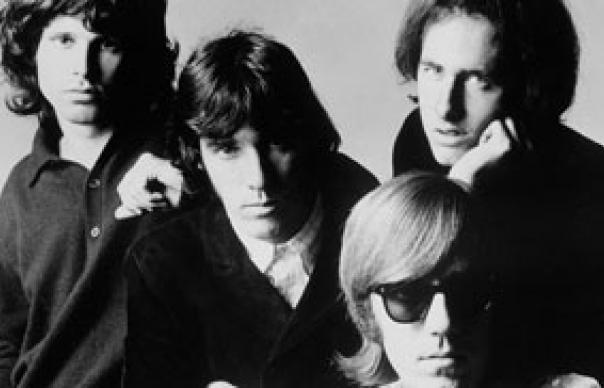The Doors camp has long held that the band’s May 2, 1970, show at the Pittsburgh Civic Arena was the tightest performance of its extensively recorded final tour, as the wildly erratic Jim Morrison showed up that night neither remote nor out of it but clear and focused. Following the replacement of a pair of long-missing sections by original engineer Bruce Botnick, this storied set can finally be heard, and absorbing it purely as an aural experience is, as they used to say, a trip.
This is music intended inspire a trance-like state – though it helps if the audience is already zoned-out to begin with, a given in this case – and right from the opening “Back Door Man”, the three players cast their spell. The extended vamps unfurl in strikingly stark and eerie patterns, bringing to mind the otherworldly churn of Portishead, albeit with a human pulse; sometimes minutes go by with little more happening than a relentlessly regular drum-and-keyboard-bass groove from John Densmore and Ray Manzarek.
These narcotic grooves propel surreal excursions like “Roadhouse Blues”, “Mystery Train” and “When The Music’s Over”, full of subtle variations in mood, rhythmic emphasis and dynamic intensity, as the band moves seamlessly between arranged and improvised sections.
In a committed performance as shaman/ringmaster, Morrison shape-shifts between a theatricality that’s practically Shakespearean in its declamation, and his version of method acting. He speaks in tongues in the breakdown of “Roadhouse Blues”, while spontaneously working in bits of other songs during the stretched-out segments, keeping the bandmembers on their toes – but then, going with the flow is their strength.
Morrison’s acuity allows guitarist Robbie Krieger to shine in his role as the echo in a call-and-response dialogue with the singer, using his trusty Gibson SG to capture the cadences and tonalities of the sounds Morrison emits, with Manzarek’s organ underscoring the interaction in the intoxicating payoffs. Throughout the set, the band masterfully conjures up the dusky atmospheres that enable the frontman to beguile and intimidate.
It’s safe to say that Live In Pittsburgh is the first Doors live album that captures the band at its spellbinding peak. From this point forward, no longer will the Boomer need to explain, “You had to be there.”
BUD SCOPPA


